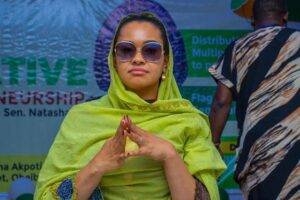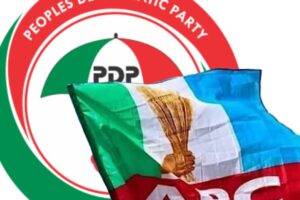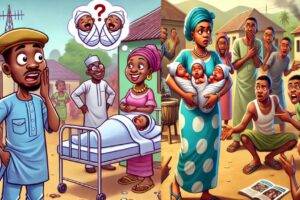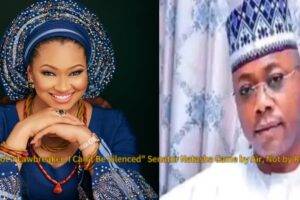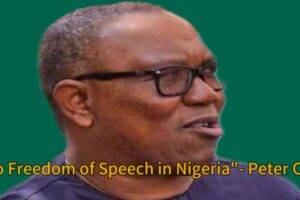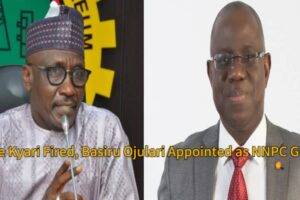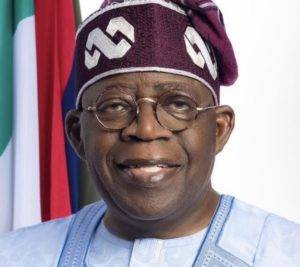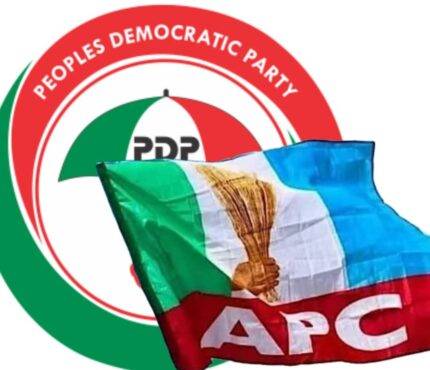President Bola Tinubu has issued a stern rebuke to the Nigeria Labour Congress (NLC), condemning their decision to declare a strike within the first nine months of an administration as unacceptable. Speaking at the unveiling of the Lagos Red Rail Line project on Thursday, President Tinubu emphasized the need for perseverance in addressing Nigeria’s economic challenges.
President Tinubu asserted that while the freedom to voice concerns and rights are crucial, initiating a strike so early in an administration’s tenure undermines stability and progress. President Tinubu highlighted the importance of maintaining peace and urged the NLC to refrain from disrupting the electoral process until 2027.
The President Tinubu remarks underscore a growing tension between the government and the labour union, raising questions about the role of organized labor in shaping national policies and reforms.
Labour Union’s Response and Public Reaction
In response to President Tinubu’s criticism, the Nigeria Labour Congress (NLC) has defended its actions, citing the urgency of addressing pressing issues affecting workers’ welfare. NLC officials argue that strikes are a legitimate tool to demand accountability and advocate for the rights of Nigerian workers.
However, the President Tinubu stance has sparked mixed reactions from the public. While some support his call for stability and patience, others express concern about the limitations imposed on workers’ rights to protest and participate in the democratic process.
The controversy surrounding the timing of strikes and the balance between labor rights and national interests continues to fuel debate across various sectors of Nigerian society.
Implications for Labour Relations and Political Landscape
President Tinubu’s remarks signal a potential shift in the government’s approach to labor relations, raising speculation about future policies and reforms. The confrontation between the government and the NLC reflects deeper tensions within Nigerian politics, with implications for the upcoming electoral cycle.
As the country navigates economic challenges and prepares for the 2027 elections, the dynamics between the government, labor unions, and other stakeholders will likely shape the socio-political landscape in the years to come. Finding a balance between maintaining stability and upholding democratic principles remains a critical challenge for Nigeria’s leadership and civil society.
President Tinubu’s Firm Stance and Reforms Amidst Labour Union’s Discontent
In a countermove against the Labour Union’s grievances, prominent political figure President Tinubu delivered a stern response, asserting the administration’s commitment to its policies and reforms. President Tinubu emphasized that despite the nascent tenure of the current administration, it cannot be undermined by strikes and protests. Moreover, he underscored the necessity of the ongoing reforms, labeling them crucial for the nation’s progress, despite facing resistance from what he termed ‘smugglers’.
Furthermore, President Tinubu addressed the issue of corruption, stating unequivocally that the government remains resolute in its mission to eradicate it. He assured the public that the current economic challenges, exacerbated by the removal of fuel subsidy and exchange rate unification, are President Tinubu implored Nigerians to persevere, painting an optimistic picture of a brighter economic future on the horizon.
Labour Union Challenged, Calls for Peace Amidst Tensions
In his address, President Tinubu issued a direct challenge to the Labour Union, cautioning against premature strikes and urging the congress to prioritize peace. He reminded the union that it does not singularly represent the voice of the people and suggested that resorting to strikes within such a short period of the administration’s tenure is unacceptable. Despite the contentious exchange, President Tinubu reiterated the need for dialogue and cooperation, emphasizing the shared goal of national development and economic stability.
Table of Contents
Discover more from OGM News NG
Subscribe to get the latest posts sent to your email.

